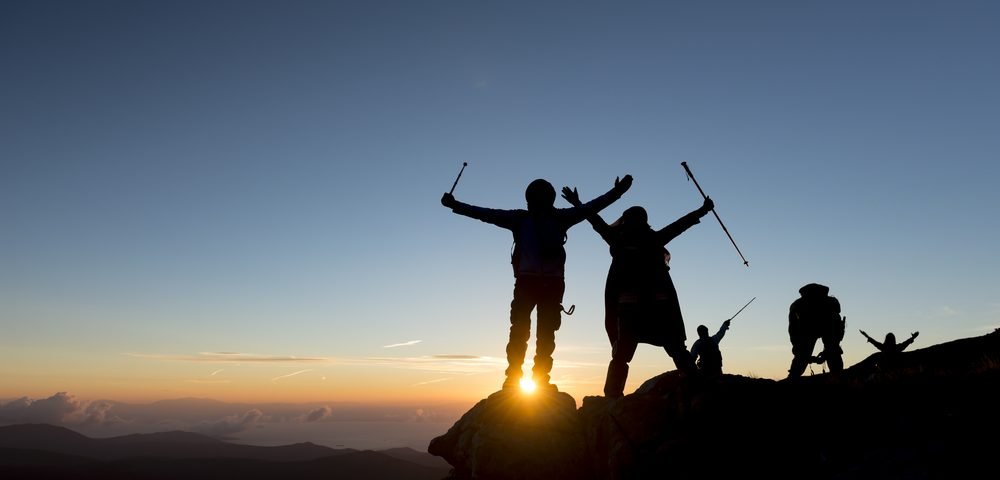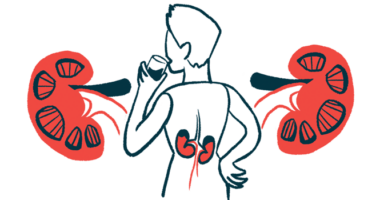Saying Goodbye to My Vasculitis Fear

emerald_media/Shutterstock
We were 600 feet above sea level as we traversed a dormant volcano rim in Hawaii. We followed a narrow ledge with nothing on the trail to guide us.
My friend, a Honolulu resident and avid hiker, told me that if we got lost, the only safety recourse was to call an expensive rescue helicopter. This was one way the island discouraged this sort of risky activity.
He was confident both in his attitude and his footsteps. As long as I carefully followed his lead, we’d have an exhilarating hike and a great memory to carry back down the mountain with us.
That perspective only lasted until it began to rain. Enormous droplets pummeled our skin, causing us to slow our pace to a crawl and eventually stop under a rock ledge, where we were forced to wait out the mid-afternoon tropical shower.
It was a moment of reckoning. One wrong step in these slick conditions could send a person hundreds of feet over the edge into the thick brush lining the mountain. Too late, we solemnly weighed the hazard involved with the opportunity to experience this treacherous and beautiful place.
That slippery trail wasn’t the first time my life was in jeopardy.
In 2005, I was diagnosed with GPA vasculitis, a rare autoimmune disorder that attacked via pulmonary hemorrhage. The raw terror and anxiety that accompanied this incident was not unlike what I experienced on the mountain a decade later. The difference was that my health situation was internal. Somewhere within my body lurked an unknown threat, forcing us to scramble to find answers and gain control before it took over.
There were countless meds, hospital visits, and tests. The team of doctors working on my case finally pronounced me in remission five months after diagnosis, which meant my greatest insecurity was past. I could now enter treatment and move forward with the knowledge that my odds of survival had significantly improved.
Eventually, I learned to push through distress, harness my mental stability, and face petrifying situations with a clear head.
Over the following years, I voluntarily put myself in uncomfortable situations. An indoor rock wall in Colorado challenged my fear of heights; a huge lake in western Kansas, my apprehension of dark water. I agreed to ride in a tiny plane with a pilot friend.
Each scenario expanded my boundaries little by little. They all lay far outside my comfort zone.
So does vasculitis. It doesn’t come naturally to any patient to undergo the lab tests and treatments that we must do to track our health. We become acutely aware of our limitations, our pain tolerances, our insecurities, our mental strength, and our own mortality. The way I felt on that rain-soaked mountain was a microcosm of this lifelong scare.
My physician told me that once I was pronounced in remission from vasculitis, there would be a 50% chance of relapse at any time. Basically, I’ll never really know what the future holds for my health. To grow up with this uncertainty as an irrevocable part of life means there’s no room left in my psyche to be afraid of the world.
It’s not that nothing scares me anymore, it’s simply that I’ve developed the tool set to cope with alarm and worry in a healthy way.
What alleviates my fear? The closeness of people I can rely on. Creature comforts like hot tea, pets, gardening, or a welcoming couch to collapse on after a grueling checkup or lab visit. Stepping outside to inhale the fresh air and reset my mental state. Affirmations I tell myself in times of stress: You’ve experienced worse. You can handle this. It’s only temporary.
Owning a similar tool set is the empowerment I wish for every patient.
Back in Hawaii, I agreed to a second daunting excursion that week: swimming the waters of Oahu’s famous North Shore. I’ve been terrified of murky water all my life, yet there I was in a surfer’s haven with the threat of sharks and other natural dangers.
I closed my eyes and endured the gentle sensation of being lifted 15 feet by the swells of waves as they rolled in one after another. As usual, the thought occurred to me: I once fought and survived an unknown threat to my life. This isn’t that scary.
The water was warm and salty, and the sun gleamed overhead as we dove and splashed like dolphins. On the beach were shells of every color, shape, and texture to collect. It was a beautiful world and I was no longer fearful. I was thrilled to be alive to enjoy it.
***
Note: ANCA Vasculitis News is strictly a news and information website about the disease. It does not provide medical advice, diagnosis, or treatment. This content is not intended to be a substitute for professional medical advice, diagnosis, or treatment. Always seek the advice of your physician or other qualified health provider with any questions you may have regarding a medical condition. Never disregard professional medical advice or delay in seeking it because of something you have read on this website. The opinions expressed in this column are not those of ANCA Vasculitis News or its parent company, BioNews, and are intended to spark discussion about issues pertaining to ANCA vasculitis.






Comments
M D. Delling
Over the last two years I have read up on everything about this horrible disease. Hoping for a cure for those who are still plagued with it. I watched my Sweet Husband die from it.. after 19 days in ICU he finally lost his battle against it. I remember when they diagnosed him. He said to me.. " Well Honey I guess I hit The Lottery of all the Bad diesaes one person can have " There isn't a Day that goes by that I don't miss Him.. Hopefully someday soon they will find a cure. Or find out why some people contract such a horrible thing... Sad in Colorado.
Madhu menon
Great post. Gives me confidence to look ahead and lead a fuller life.